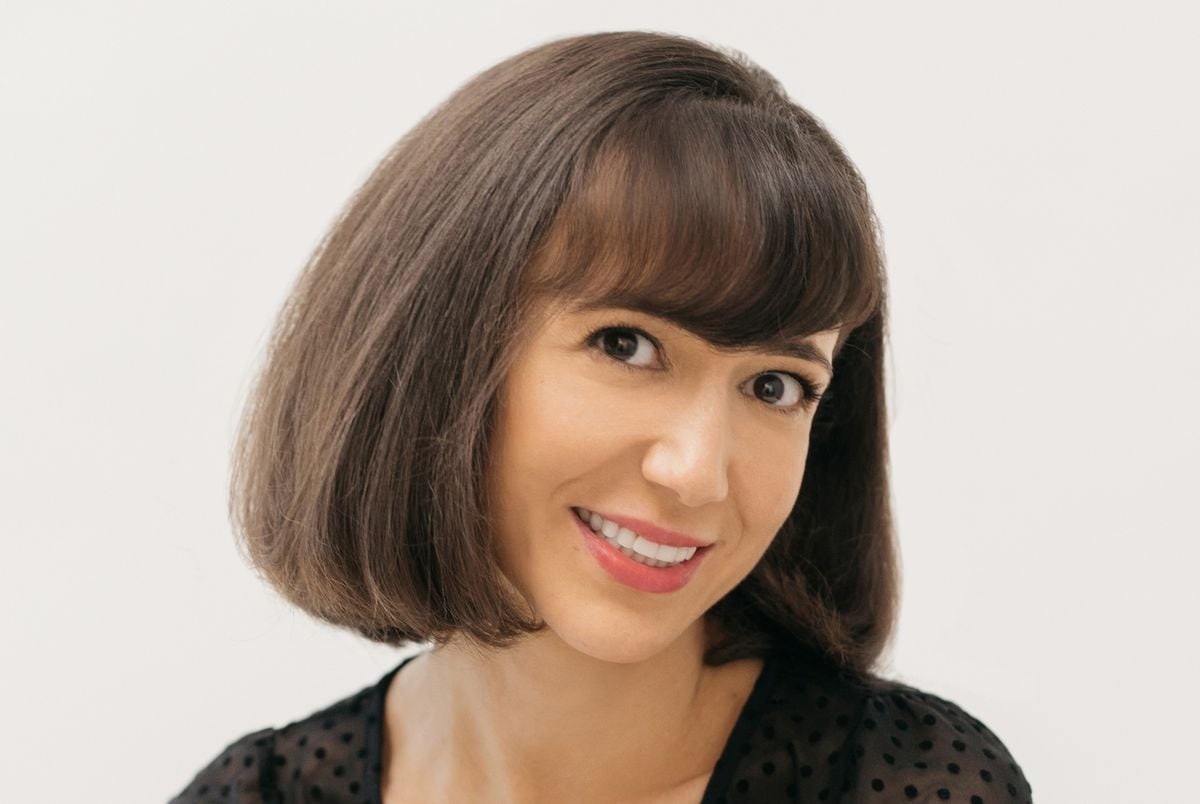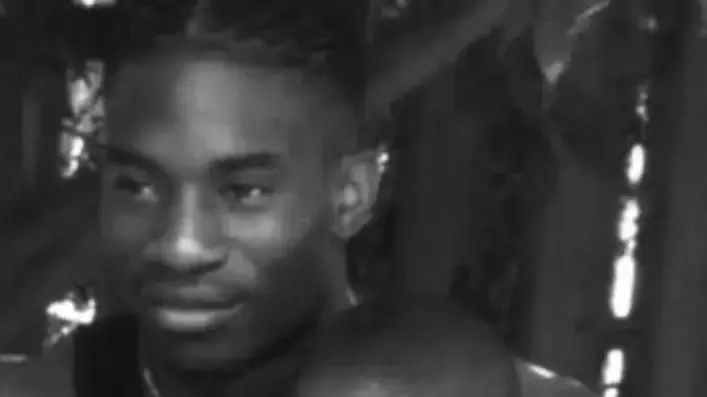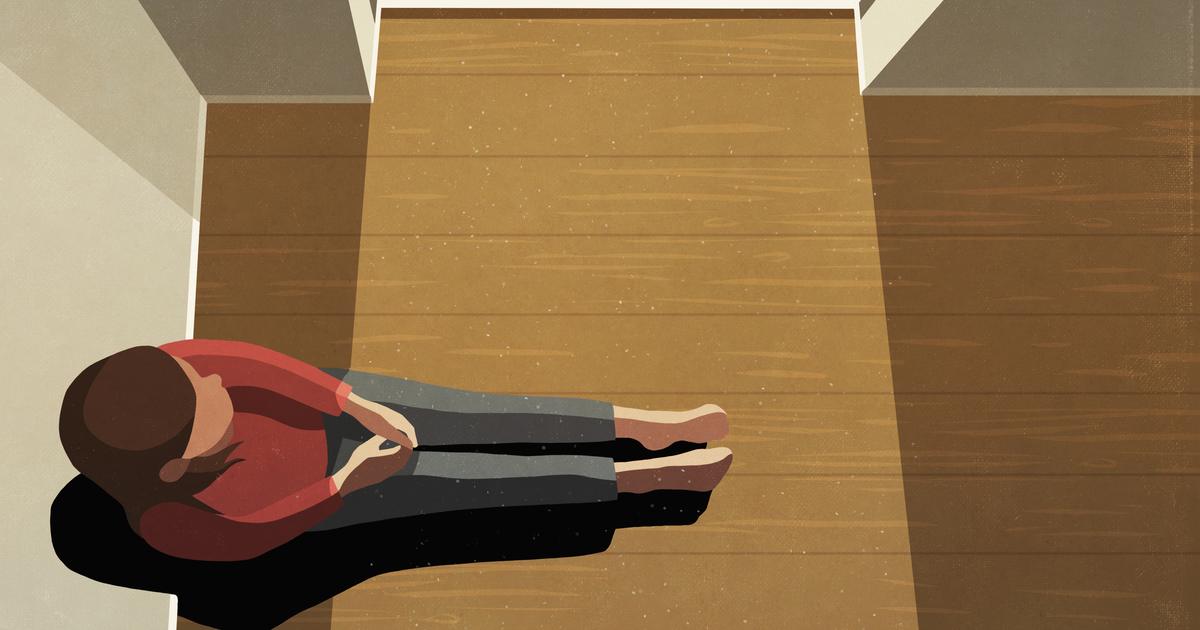Pablo Melicchio
06/05/2020 - 22:01
- Clarín.com
- Society
The man I will call Ricardo, suddenly, in the solitude of his pension, found himself profoundly empty and desperate. But that morning his tevé stopped being a lonely cover machine and he paid special attention to a news program to which I was summoned to talk about the psychological consequences that the coronavirus could unleash. What words did I say, said that psychologist, so that Ricardo, in the midst of despair, would go out and seek my help?
I kept reading
The joy of feeling part of something bigger
Society
Ricardo's existential drowning, like that of so many men and women, deepened when the coronavirus stopped being a Chinese tale and became the bloodiest reality, adding infected and dead and expanding without limits. The establishment of the quarantine was limiting the virus and saving lives. But there were those who did not have, nor do they have, the necessary tools to mitigate the effects of the confinement.
Screen. Another way to reach people with problems.
Due to the overflowing reality, I began to be sued by some media. You had to go out and talk about how to take care of your head in isolation. We had to talk about gender violence, phobias and panic attacks enhanced in the running of the bulls. It came out live from the makeshift home office.
After each note, my social networks exploded, above all of demands, requests for advice and tips ; I suddenly became a 24-hour psychologist. The most diverse realities were conjugated with the coronavirus to result in tormented beings, bordering on madness, depression and even suicide. When the compulsory social isolation was renewed for another fifteen days, it unleashed a general commotion. It was renewed to save us from getting sick, but at the same time the anguish of continuing in the shipwreck increased , in the midst of the rough sea of the pandemic.
Today. Pablo's office empty. The patients, online. MR
It was then when the radios, the newspapers, the live ones by Instagram and Facebook, but above all the tevé, they were looking for psychologists to help us understand what was happening to us and to give us some tools to better transit the time of confinement. After the interviews they began to follow me through social networks and write to me privately. Men and women who felt really bad, like Ricardo, who told me about their situation, consulting me, almost always urgent. Links, some, that only lasted for the duration of a question and an answer; With others, as the case may be, I am still interacting, I decided to pass them my cell phone number or we talked through the networks.
On the first Monday in May I closed the workday answering more than a hundred queries, more than a hundred stories, more than a hundred illnesses , worlds perhaps already weak but now shaken by the gale of the coronavirus. A woman victim of gender violence, locked up with the violent male, who thought that her only way out was to kill herself. A disabled boy, with his disabled mother, living together, suffering together, without medication, in a precarious house and their lives becoming precarious. A marriage, she with panic attacks, feeling that she was dying; and he, a hypochondriac who thought all the time that he had the symptoms of the coronavirus. A man with anxiety disorders, on the verge of insanity. A desperate mother, from a corner of the suburbs, that the social work did not provide any answer and did not know how to contain her daughter with autism.
Just a few examples, the ones that most moved me. I felt more than once that it was too much pain, that I couldn't keep responding, that I was going to end up overflowing too. But I advanced. I was reading each of the messages, listening, getting involved in each of the stories, and giving the odd response to the demands. They were not and are not my patients in the strict sense of the word and the act of caring , but I assisted them and several continue to assist them, at a distance, while the quarantine also causes effects on me and my loved ones.
I know my limits and how limited virtual fields and telephones often are. But I make the effort to respond, to try to alleviate a little the suffering of the one who consults. Words and presence that are possibly like a tourniquet until the quarantine passes. It is a time marked by emotional overflow and hospitals and health centers only receive consultations linked to coronavirus, the damn king who takes all the attention while people have conditions that are older than the plague. When the tide of the coronavirus falls, what remains will it leave on the beaches of every life? All the suffering beings with whom I have been interacting have captured my attention, but Ricardo became the metaphor that best defines this time disrupted by the pandemic.
Ricardo contacted me through one of the social networks after one of my television outings. He wrote me telling me who he was, that he had not slept for several nights and that he needed an urgent consultation . Once I answered him, he started sending me audios and I answered him in the same way. He told me that he lived in a pension, in an internal room, three by three, without windows. "Graduate, my life is going from the bed to the bathroom and from the bed to the chair", he said to me, with a broken voice.
The walls and ceiling were coming down on him, suffocating him. And Tevé was his only company, all the time on, "that's why I could see him and I felt he could help me," he told me. He left to go to the supermarket, went and came back immediately, chased by the ghost of the coronavirus. Ricardo was isolated in despair, but suddenly he felt that someone could understand him.
In the newscast I explained that some symptoms, such as the alternation on the same day between states of anxiety and anguish, the fear of getting sick and dying , or the uncertainty in the morning, were natural, because the psyche sought to adapt to the new routine generated by quarantine. Interview in which I also pointed out that the symptoms must be received without anger, because it was expected that our mind would manifest itself before this obligation of confinement that, even if it is for a good, so as not to infect or infect ourselves, it was not natural to be three months cloistered, with social and work life on pause, far from affection, without hugs or kisses, I said.
Ricardo was alone, or worse, isolated. He had a family that fell apart and a marriage that "ended very badly"; a deception, which was not the only one in his life. Since then he was looking for occasional companies. Without a doubt Ricardo was already a man in crisis, but the obligatory social confinement was like oil on the ledge along which he staggered. When he was banned from continuing to work, he had the feeling that he was entering the final curve of his life, that all the time inside the pension would be unbearable, and it turned out that way.
Ricardo's tone of voice was that of a dejected man, perhaps exhausted by the misfortunes that were piling up in the solitude of confinement. The parents had died many years ago. His only brother lived in another country and had no contact with him. He had several relationships. He had no children. The social fabric of his life was fraying with the brush of the years, until he was truly alone, isolated.
While detailing the dramas of his story, he closed each sentence with the phrase: "Do you understand me?" In that isolation, in that despair, my presence on TV was a possibility for him, I don't know if for a psychologist to assist him but rather for someone to understand him; and maybe trying to do something with that existential emptiness that cornered him in the confinement.
Ricardo found a presence to be less withdrawn from the world. I held it back. I told him some things, the ones he had said on TV, but also the ideas that his unique situation generated for me, because he was no longer a viewer, he was a real man, with a real life, sunk in despair; perhaps losing the ultimate sense of existing. And I was no longer a psychologist on TV, I was ... I don't know. What label, what title to put to these interventions. That the others catalog it, I only took charge, I helped him for a few days like someone who relieves you with the weight of a bag a couple of blocks.
Ricardo began to send me written and audio messages. I entered his life, his pension, his history. Each message moved me, the pain of its existence began to be part of my life . Why did Ricardo get my attention and not only did I interact with him but also decided to write about his history? Perhaps mobilized by something of the opposite; he in his confinement, in the solitude of the pension; I in my house, with my family.
Ricardo is almost sixty-five years old and has a life marked by some "bad decisions", he acknowledged. In recent times, work was his only connection with the world and with other beings, until he entered leave a few days before the first quarantine for being part of the population at risk. But he seemed to be more vulnerable in the confinement of his pension than in the outside world of masks and social distancing. Wouldn't the risk of the street and the coronavirus be better for Ricardo than isolation? I asked myself once. I do not know. The truth is that confinement for him meant the encounter with an increasingly alienating loneliness. And by this I don't mean that I disagree with the quarantine. I want to emphasize that there are singularities, and that what is good for some is not necessarily good for others.
From my mobile office, in the background, between the lemon and orange trees, or in the kitchen, when the temperature drops, I continue to attend to my patients through video calls or Skype. With them and with them, as with Ricardo, a new dimension was generated by the coronavirus and its effects. Then I enter homes, in daily lives, in the closed neighborhood where there are various environments and flowery corners, where the patient can find the necessary privacy; or in a small PH, where a patient has to put music behind the door of her room so that the husband does not hear, as he already did, what she is working on in her therapy.
After intense talks, such as small sessions in the same day, Ricardo found a bit of calm. When the quarantine ends, he will start a treatment, maybe with me, he told me, even if I have to travel a lot. This is a world overpopulated with uncertainties, I'm not sure Ricardo does not return to the island of despair , but the presence of a psychologist on TV was a lifesaver in the middle of a closed, windowless room where he was drowning. Now he will have to get to a beach, walk, find a place where he can rearm his life; that's already your task.
The coronavirus opened a new dimension in the world, also in my work as a psychologist, a more social work before which I decided not to back down. Hopefully this slap in the face of human pride, marked by an invisible enemy, will awaken us and rescue a more solidary sense of life. We are interconnected, both to infect ourselves and to take care of ourselves. Ricardo is the metaphor of many men and women who are in isolation, with or without coronaviruses, on the brink of despair, but also holding to the last wish: someone to register them.
------------
Ricardo is a fictitious name that was used to protect the identity of the viewer who contacted the author.
-------------
Pablo Melicchio is a writer and psychologist (UBA MN 24480). He worked in mental health clinics, in youth prisons and with men on the street. In 2018 he was declared an Illustrious Citizen of Morón. He collaborates for various graphic, radio and television media. He published the following books: "Letter in the shade", "The voices from below", "GPS to guide us through the adolescent world", "The bird woman and a modest eternity", "Quinifreud", "Art can save us" , "Short therapy: stories to think and not so much" and "The Norita side of life", declared of deliberative and municipal interest by the HCD de Morón. Some of his books have been translated into French.



/cloudfront-eu-central-1.images.arcpublishing.com/prisa/SA262KRCZ5BVRO4P7SUSVQPR7Q.jpg)





